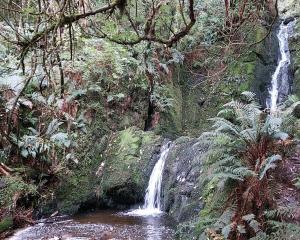
As a third-generation sheep farmer in the Manuherikia catchment in Central Otago, born and brought up on our family farm, I have farming in my blood. Fine wool sheep (Polwarth) is what we farm at Matakanui.
I’ve always enjoyed farming; you get to do a different type of job every day and it’s never the same. From one minute to the next you’re working with cattle or sheep, and you can go from being a plumber, tractor driver, fencer, builder, botanist, veterinarian or sitting in the office doing compliance and accounts.
If any jobs get you down, you know that there is always something exciting around the corner.
I also have a fondness for working with dogs, who love you no matter how hard they work. They are good listeners when things aren’t going so well.
But what makes farming so special here, is the community.
I’ve been in this community my whole life, bar a brief stint at university and overseas. Growing up, I went to Omakau school, where I made life-long friends. I grew up in a place and time where the rugby club was everything, with memories of ice skating, skiing and rugby in the winter and swimming and boating in the river and lakes in the summer to keep cool.
Not much has changed and we still swim and jetboat on the Manuherikia (with permission of course). It’s a great river to boat on.
People who have moved into the area say that we are friendly and welcoming. We’re connected and as a community I think we are well informed. It feels like we’re all one community, connecting to look after our area.
But it starts with home — and it’s exciting to see what’s happening on the farms across our catchment.
On the Paterson farm we’ve been water quality and MCI testing for more than six years. Knowing exactly what’s happening helps us identify issues, like the runoff from our woolshed, which we were able to fix. We’ve seen our water quality steadily improving in the past five years.
We also used to do a lot of wild flood irrigation (border dyking and contour) but to minimise nutrients ending up in the waterways, we upgraded our irrigation system.
The system irrigates less than 5% of our farm and are four-six times more efficient. Ultimately it helps our young stock be less vulnerable in the droughts.
We have a 6ha wetland (currently in the process of being planted in natives whenever possible) and we have one of the largest areas of alpine totara in Otago which we are looking to put into covenant.
We are working with AgResearch on sheep methane testing. This is a new area for us but one we are excited to see develop.
I’m extremely proud to co-chair the Manuherekia Catchment Group, and to support our local community to achieve some amazing environmental, social, cultural and economic projects. We have a renewed vision as a catchment, and I think the next few years will be really exciting for the group.
Nothing stands still in farming, and it feels like we are dealing with a set of new challenges.
If you think about the changing climate, many locally will remember the big freeze in 1995 and how the community rallied. We had snow on the ground for eight weeks and -26°C at the back door. I remember driving the tractor to rake the snow off the hill and throw sticks at the power lines to knock off the hoarfrost, so we didn’t lose power.
Fast forward to today and putting aside our changing climate and how as a community we need to adapt, I believe that the new water regulations may essentially change the way farming is done. The solution is large water storage. It’s the key to everyone’s happiness.
This area is ideal for farming — in my opinion probably the best climate and land in the country. We don’t have excess water leading to runoff and we manage our water extremely carefully, so our farming practices are well adapted to the environment.
Having said that, I have a vision in 10-20 years’ time, that things don’t actually change that much. We continue to be a prosperous and healthy community, and a place where my kids are proud to farm. The only way we can make this happen is to farm sustainably and irrigate responsibly.
We can always be better and one area that I think needs attention from everyone in the community is our ability to work together to co-exist in harmony.
Farmers, as custodians of the land, are environmentalists. When you look at the farms around the valley, farmers are doing incredible things to nurture their environment.
Whatever you might hear, I believe that we’re one of the most connected communities in the country and that’s just the most empowering place to be when you think about the opportunities and change ahead of us!
- Andrew Patterson is chaiman of the Manuherikia Catchment Group.












